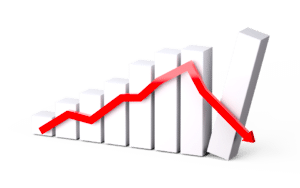A financial downturn could occur for any number of reasons. If you follow economics at all, then you know that we have been in a “bull market” or a market on the rise for about ten years. Trends show that bull markets usually last about 8.5 years and are followed by a “bear market” or market in decline (https://en.wikipedia.org/
Preparing for the Worst
The answer is, absolutely there are steps that you can take to prepare financially for a downturn, small or catastrophic. The first thing to do is to gain a fuller understanding of the signs that lead up. Inflation that seems a bit too high or a stock market that suddenly drops a few thousand points in a matter of weeks would both be signs that the economy has structural problems. Systemic risk is implied when something awful like this occurs, so finding a way to buffer yourself against a downturn is critical.
Create an Emergency Fund
Set aside some money every month for an emergency fund in case an economic downturn manifests itself. Then again, you might lose your job and wish that you had a few extra dollars sitting around to help defray the cost of essentials like groceries and rent. Who wants to risk having the lights turned off simply because they couldn’t come up with a few extra dollars? As a general rule of thumb, you should try to set aside about six months of expenses; ideally, you could set this up in an interest-bearing savings account before anything nasty happens on the global financial scene.
Slowly Reduce Your Debt
Another preparatory step that you should take, whether or not a world-altering crisis occurs, is consolidating and reducing your debt. A lot of people walk around with student loan debt, for instance, and don’t realize that their debt is slowly hobbling their financial futures. The truth is that you can make manageable monthly payments towards paying off your debt, and you’re making these small monthly payments can reduce the size of your payments and related interest.
Speaking of interest, if you have credit card debt with variable-rate (floating) interest, then you want to pay that off when things get bad because interest rates could skyrocket following a meltdown. The name of the game is reducing your exposure and planning for a soft landing.
Create Multiple Streams of Income
Creating more than one source of income is an excellent way to prepare for lean times. We’re living in the gig economy, which means that work is always available. The beauty of working at more than one job, however informal, is that you reduce your exposure and put yourself in a position to weather any storm. If one job dries up, then you can shift to another. That’s great for reducing your financial exposure.







